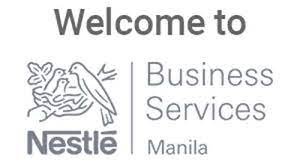
Nestlé business services (NBS)
Introduction:
Nestlé business services is a Swiss multinational food and beverage company, and one of the largest and most well-known corporations in the world. It was founded in 1866 by Henry Nestlé, and it has since grown into a global powerhouse with a diverse range of products. Nestlé operates in various sectors, including food and beverages, health science, skin health, and infant nutrition.
The company’s product portfolio is extensive, covering a wide array of categories such as coffee, dairy products, water, breakfast cereals, pet care, and confectionery. Some of its popular brands include Nescafé, Nestea, Nestle Pure Life, Kit Kat, Maggi, and Nespresso, among many others.
Nestlé Business Services (NBS) as a crucial component of Nestlé’s operations.
Nestlé Business Services (NBS) is a crucial component of Nestlé’s operations, serving as the company’s shared service organization that provides centralized support services across various functions. NBS plays a key role in optimizing Nestlé’s business processes, enhancing efficiency, and driving cost-effectiveness throughout the organization. This centralized approach allows Nestlé to streamline its operations, focus on core business activities, and leverage economies of scale.
Some of the key functions and services provided by Nestlé Business Services include:
Finance and Accounting:
NBS handles financial processes such as accounts payable, accounts receivable, general accounting, and financial reporting. By centralizing these functions, Nestlé can ensure consistency and compliance across its diverse business units.
Human Resources:
NBS manages HR services, including payroll administration, employee benefits, talent acquisition, and workforce management. This helps Nestlé maintain standardized HR practices and deliver efficient services to its employees globally.
Procurement:
NBS is involved in procurement activities, managing the sourcing and purchasing of goods and services for Nestlé. Centralizing procurement allows the company to negotiate better deals, achieve cost savings, and ensure consistent quality across its supply chain.
Information Technology (IT):
NBS plays a role in providing IT services, supporting Nestlé’s technology infrastructure, and ensuring the seamless functioning of IT systems across the organization. This includes services such as data management, cybersecurity, and technology support.
Business Excellence:
NBS focuses on continuous improvement and business excellence initiatives, driving innovation and operational excellence within Nestlé. This involves implementing best practices, standardizing processes, and optimizing workflows.
By consolidating these services under Nestlé Business Services, the company can achieve greater efficiency, reduce operational costs, and enhance the overall agility of its operations. NBS also contributes to Nestlé’s broader strategy of creating a lean and agile organization capable of adapting to the dynamic challenges of the global business environment. Overall, Nestlé Business Services plays a vital role in supporting Nestlé’s mission to provide high-quality products and maintain a competitive edge in the global market.
Background of Nestlé Business Services:
Nestlé Business Services (NBS) was established as part of Nestlé’s ongoing efforts to optimize its operations and enhance efficiency. The creation of NBS reflects a global trend among large corporations to consolidate and centralize support functions to achieve economies of scale and improve overall effectiveness.
Here are some key points about the background of Nestlé Business Services:
Establishment:
NBS was established to serve as a shared service organization within Nestlé. The goal was to centralize certain business processes and support functions to ensure consistency, standardization, and cost-effectiveness across the company’s diverse operations.
Scope of Services:
NBS encompasses a range of services, including finance and accounting, human resources, procurement, information technology, and business excellence. These services are designed to support Nestlé’s core business activities by handling standardized processes centrally.
Global Presence:
NBS operates on a global scale, providing services to Nestlé’s various business units and operations around the world. This global approach allows Nestlé to leverage the expertise and resources of NBS across different regions.
Efficiency and Cost Savings:
One of the primary objectives of NBS is to drive efficiency and cost savings. By centralizing certain functions, Nestlé can achieve economies of scale, reduce duplication of efforts, and optimize its overall cost structure.
Technology Integration:
NBS is likely to incorporate advanced technologies and systems to enhance its service delivery. This may include the implementation of digital tools, automation, and data analytics to improve the efficiency and effectiveness of various processes.
Highlight the global footprint of NBS, including its locations and the regions it serves.
NBS is likely to have a presence in strategic locations around the world to effectively serve Nestlé’s diverse business units and operations. These locations are chosen to optimize operational efficiency, access talent pools, and provide support to the regions where Nestlé operates.
Key aspects of the global footprint of NBS may include:
Regional Hubs:
NBS may establish regional hubs or centers in different continents or major economic regions. These hubs are designed to centralize specific services and cater to the needs of nearby business units. For example, NBS may have hubs in Europe, the Americas, and Asia.
Strategic Locations:
NBS is likely to be located in cities or regions with a strong infrastructure, a well-educated workforce, and proximity to major business centers. This ensures that the shared services organization can effectively support Nestlé’s operations globally.
Global Service Delivery:
The nature of shared services is to provide standardized and centralized support globally. Therefore, NBS is expected to offer its services to Nestlé’s operations across various continents, serving business units in Europe, the Americas, Asia, Africa, and other regions.
Collaboration and Integration:
NBS may foster collaboration and integration between its different locations to ensure a cohesive and synchronized approach to supporting Nestlé’s diverse business functions. This may involve the use of advanced technologies for seamless communication and workflow integration.
For the most accurate and up-to-date information on the global footprint of Nestlé Business Services, including specific locations and regions served, it’s recommended to refer to Nestlé’s official communications, annual reports, or other official publications from the company. Keep in mind that organizational structures and global footprints can evolve over time.
Explore the technological advancements and innovations implemented by NBS.
Digital Transformation:
Shared service organizations often undergo digital transformation initiatives to digitize manual processes and enable seamless data flow. This may involve the implementation of advanced enterprise resource planning (ERP) systems, robotic process automation (RPA), and other digital tools to enhance overall operational efficiency.
Automation:
NBS may leverage automation technologies to automate routine and repetitive tasks, allowing employees to focus on more complex and value-added activities. Robotic Process Automation (RPA) is commonly used in shared service environments to automate rule-based tasks in areas such as finance, HR, and procurement.
Data Analytics:
Utilizing data analytics tools allows NBS to extract valuable insights from large datasets. Predictive analytics and business intelligence tools can help in making informed decisions, optimizing processes, and identifying areas for improvement.
Cloud Computing:
Cloud technologies can provide scalability, flexibility, and cost-effectiveness. NBS may leverage cloud-based solutions for various functions, including data storage, collaboration tools, and software applications, enabling employees to work efficiently from different locations.
Artificial Intelligence (AI):
NBS may explore the integration of AI technologies for tasks such as natural language processing, chatbots for customer support, and machine learning algorithms for predictive analytics. AI can enhance decision-making processes and improve response times.
Cybersecurity Measures:
Given the sensitivity of the data managed by shared service organizations, implementing advanced cybersecurity measures is crucial. NBS may adopt cutting-edge technologies to protect against cyber threats and ensure the security of sensitive information.
Collaboration Tools:
To facilitate seamless communication and collaboration among global teams, NBS may deploy advanced collaboration tools. Video conferencing, project management software, and other communication platforms can enhance teamwork and efficiency.
For the most up-to-date information on the technological advancements implemented by Nestlé Business Services, it’s advisable to refer to Nestlé’s official communications, technology-related publications, or any specific reports the company may release regarding its digital initiatives. Additionally, you may also explore industry news and press releases for the latest developments in shared service technology.
Challenges and Solutions:
While Nestlé Business Services (NBS) has likely experienced various challenges in its operations, specific details on their challenges and solutions may not be readily available. However, in the broader context of shared service organizations and multinational corporations, certain common challenges and potential solutions can be considered. These challenges often include:
Global Complexity:
Challenge – Managing diverse operations across different regions with varying regulations, cultures, and business practices can be complex. Solution – Implement standardized processes and technologies to ensure consistency and compliance across regions. Invest in cultural awareness training for employees working in global roles.
Data Security and Privacy:
Challenge – Handling sensitive data requires robust cybersecurity measures to protect against cyber threats and comply with data protection regulations. Solution – Implement state-of-the-art cybersecurity technologies, conduct regular security audits, and ensure compliance with data protection laws. Provide ongoing training to employees on cybersecurity best practices.
Technology Integration:
Challenge – Integrating diverse technologies and systems can be challenging, especially in a global context with different IT infrastructures. Solution – Develop a comprehensive IT strategy that includes interoperability standards and invest in technologies that allow seamless integration. Regularly update and upgrade systems to stay current with technological advancements.
Talent Management:
Challenge – Attracting, retaining, and developing a skilled workforce is crucial for the success of shared service organizations. Solution – Implement competitive compensation packages, offer continuous learning and development opportunities, and foster a positive and inclusive work culture. Leverage technology for remote work to access a broader talent pool.
Change Management:
Challenge – Implementing new technologies or organizational changes can face resistance from employees. Solution – Develop a robust change management strategy that includes clear communication, employee training programs, and involves employees in the decision-making process. Highlight the benefits of changes to gain employee buy-in.
Regulatory Compliance:
Challenge – Adhering to various local and international regulations can be complex and may change over time. Solution – Establish a dedicated compliance team, stay updated on regulatory changes, and implement tools and processes to monitor and ensure compliance. Conduct regular audits to identify and address any compliance gaps.
Cost Management:
Challenge – Balancing cost-effectiveness with the delivery of high-quality services is a perpetual challenge. Solution – Continuously review and optimize processes for efficiency, explore automation and digitization opportunities, and regularly assess the cost-effectiveness of service delivery models.
It’s important to note that the specific challenges faced by NBS may vary based on its organizational structure, industry dynamics, and the evolving business environment. The company’s official communications, reports, or industry news may provide more specific insights into challenges and solutions implemented by NBS.
Future plans and potential growth of NBS.
here are some general considerations for the future plans and potential growth of shared service organizations like NBS:
Digital Transformation:
Shared service organizations often prioritize digital transformation to enhance efficiency and effectiveness. NBS may continue to invest in advanced technologies such as robotic process automation (RPA), artificial intelligence (AI), and data analytics to further streamline processes and improve decision-making.
Global Expansion:
If not already in place, NBS may consider expanding its global footprint to support Nestlé’s growing operations in emerging markets. This could involve establishing new regional hubs or centers in strategic locations to better serve diverse business units.
Enhanced Service Offerings:
NBS may explore opportunities to expand its service offerings beyond traditional functions like finance, HR, and procurement. This could involve supporting Nestlé’s business units in new areas such as advanced analytics, digital marketing, or other specialized services.
Agility and Flexibility:
Given the evolving business landscape, NBS may prioritize agility and flexibility in its operations. This could involve adopting agile methodologies, flexible work arrangements, and scalable technologies to quickly adapt to changing business needs.
Customer-Centric Approach:
NBS may align its future plans with a strong focus on meeting the evolving needs of Nestlé’s internal customers. This could involve implementing customer-centric service delivery models, personalized support, and continuous feedback mechanisms.
Sustainability Initiatives:
In line with Nestlé’s commitment to sustainability, NBS may integrate environmentally friendly practices into its operations. This could involve implementing green technologies, reducing the environmental impact of processes, and aligning with Nestlé’s overall sustainability goals.
Continuous Improvement:
NBS is likely to focus on continuous improvement initiatives, regularly assessing its processes and performance to identify areas for optimization. This could include leveraging employee feedback, benchmarking against industry best practices, and adopting a culture of continuous learning.
conclusion:
Nestlé Business Services (NBS) plays a vital role in Nestlé’s global operations, serving as a centralized support organization with a focus on efficiency, standardization, and cost-effectiveness. NBS operates globally, utilizing advanced technologies like digital transformation, automation, and data analytics to optimize processes. Challenges such as global complexity, data security, and talent management are addressed through solutions such as standardized processes, robust cybersecurity measures, and talent development initiatives.
Read Also: True Education


